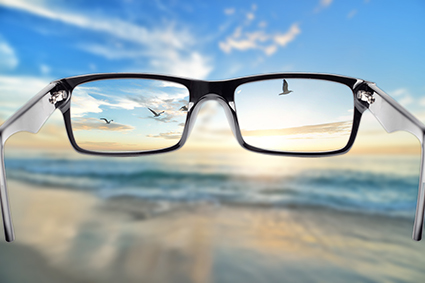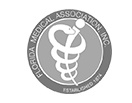The Gulfcoast Eye Care Doctors have either authored or reviewed and approved this content.
Thanksgiving Closure: We will be closed on 11/28-11/29. Happy Thanksgiving from all of us at Gulf Coast Eye Care

Cataract Surgery in Tampa, FL Gulfcoast Eye Care is committed to improving vision and eye health for patients in the Pinellas Park and Palm Harbor areas. Our board certified cataract surgeon, Dr. Michael Manning, specializes in diagnosing and treating cataracts and he is highly experienced in advanced cataract surgery techniques.
Page Updated:
Gulfcoast Eye Care is committed to improving vision and eye health for patients in the Pinellas Park and Palm Harbor areas. Our board certified cataract surgeon, Dr. Michael Manning, specializes in diagnosing and treating cataracts and he is highly experienced in advanced cataract surgery techniques.
At Gulfcoast Eye Care, you’ll find a team of friendly experts ready to help you manage your vision with cataracts and plan your cataract surgery when you’re ready. Our skilled team uses advanced technology to diagnose, treat, and remove cataracts to provide our patients with the best results and smoothest recoveries.
A cataract is a very common eye condition that affects over 24 million Americans. Cataracts occur when the eye’s natural lens hardens and becomes cloudy, reducing the ability of the lens to properly pass light to the retina. Cataracts frequently develop with age but can also affect younger people as a result of a congenital defect or injury.
Are you experiencing any of the symptoms below, or do any of the following risk factors apply to you? Schedule a comprehensive eye exam with our doctors today and we can determine how to best restore your vision from cataracts.
In the early stages of having a cataract, your symptoms will typically be mild, and you may be able to find improvement with glasses or brighter lighting. However, as symptoms inevitably progress, surgery is the only way to completely treat cataracts. Cataract removal is one of the most commonly performed surgical procedures in the United States and is widely regarded to be safe and effective. During cataract surgery your eye’s natural lens is replaced with an intraocular lens implant (IOL).


Intraocular lens implants, known as IOLs, are artificial lenses that serve as replacements for your eyes’ natural lenses once your cataracts are removed. Traditional cataract surgery with a standard IOL will reverse the effects of cataracts and restore distance vision, but patients may still need glasses for activities like reading or to correct conditions like astigmatism. Our practice offers a full range of advanced IOLs that can allow patients to see more clearly at a variety of distances without a heavy reliance on corrective eyewear. For patients who would like to experience LASIK-like results, advanced IOLs can correct astigmatism, presbyopia, and vision at all distances!
Gulfcoast Eye Care is proud to offer a revolutionary advanced intraocular lens (IOL) option for cataract surgery: light adjustable lenses. Other IOLs can enhance and improve your vision, but only LALs allow your surgeon to adjust your eyesight after your procedure, so you get the best sight possible for your specific situation.
The RxSight Light Adjustable Lens is one of the most advanced premium IOLs available and will ensure you get the sharpest vision after your surgery. LALs also have built-in treatments that reduce halos and glare, helping to enhance your eyesight and quality of life.
In addition to clearing up vision from cataracts, advanced and premium IOLs have the additional benefit of enhancing your vision, reducing your reliance on eyeglasses and contact lenses.
 Vision with a Cataract
Vision with a Cataract Traditional IOLs
Traditional IOLs Advanced IOLs
Advanced IOLsDr. Michael Manning is a renowned cataract surgeon with years of experience, and our entire team at Gulfcoast Eye Care is dedicated to providing compassionate care. Contact us with any questions or to schedule a consultation appointment in Pinellas Park, Palm Harbor, or St. Petersburg, Florida
Patient Reviews
Reviews and Ratings from Real Patients






